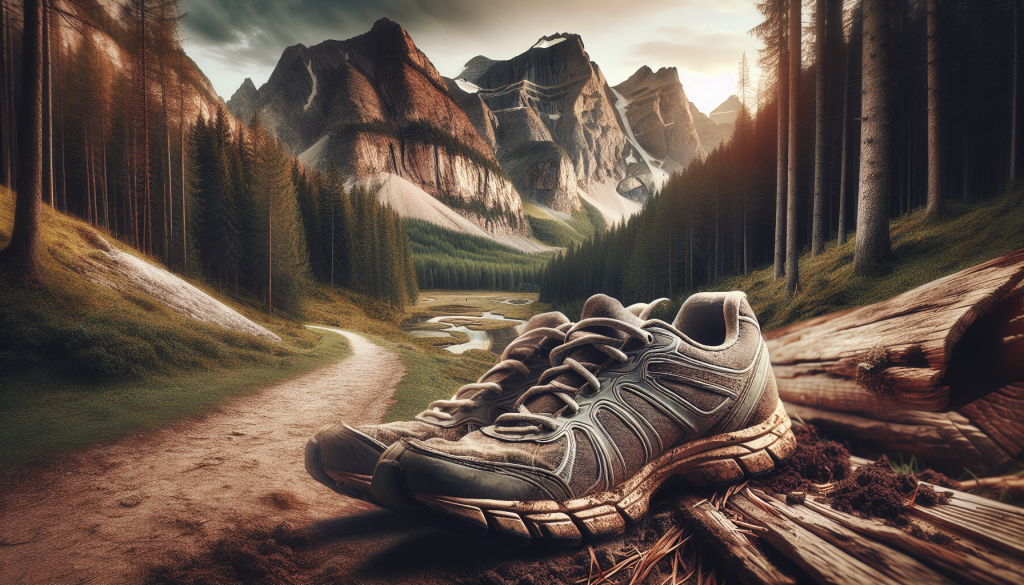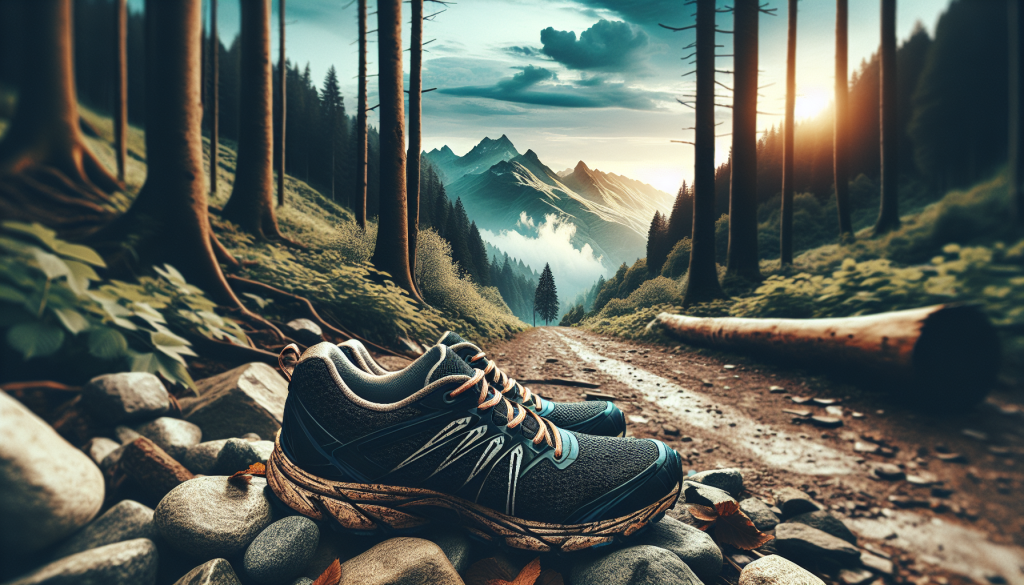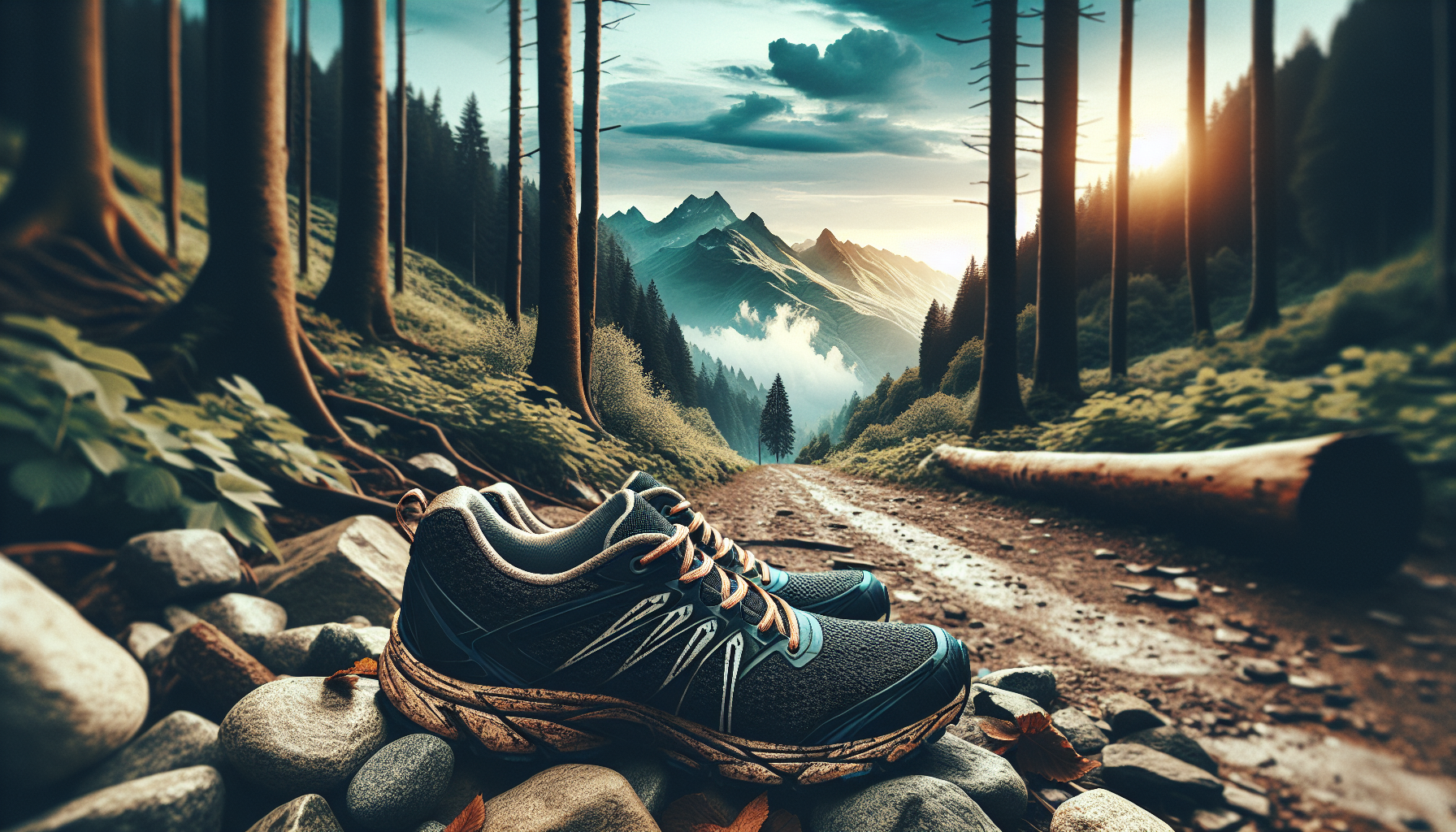Are you an avid runner who wants to venture into the world of hiking? Or perhaps you’re a hiker who is tempted to try out a pair of running shoes for your next adventure? Before you head out on the trails, you may be wondering if your trusty pair of running shoes can handle the demands of hiking. While running shoes can certainly be comfortable and provide excellent support for your feet, there are a few key factors to consider when deciding whether they are suitable for hiking. Let’s take a closer look at the pros and cons of wearing regular running shoes on the hiking trails.
Can I Wear Regular Running Shoes For Hiking?
The Importance of Proper Footwear for Hiking
When it comes to hiking, it’s crucial to wear the right footwear. Your feet are your most valuable asset on the trail, and wearing improper shoes can lead to discomfort, pain, and even injuries. Proper hiking shoes provide the necessary support, stability, and protection to keep you comfortable and safe during your outdoor adventures.
Understanding the Differences between Running Shoes and Hiking Shoes
While running shoes and hiking shoes may appear similar at first glance, they are designed for different purposes. Running shoes are designed with a focus on cushioning, flexibility, and weight. They are built to absorb impact and provide a smooth ride on flat, even surfaces like pavement or tracks.
On the other hand, hiking shoes are specifically designed for the demands of the trail. They prioritize features such as traction, ankle support, durability, and protection. Hiking shoes typically have a more rugged sole with deeper lugs to provide better grip on uneven terrain, while also offering greater stability and protection through reinforced toe caps and supportive midsoles.

Factors to Consider Before Wearing Regular Running Shoes for Hiking
Before deciding to wear regular running shoes for hiking, there are several factors you should consider. The terrain, distance, and weather conditions of your hike play a significant role in determining the suitability of your footwear choice. If you are planning a short and easy hike on well-maintained trails, running shoes might suffice. However, if you’re tackling more challenging terrains or embarking on multi-day hikes, dedicated hiking shoes or boots would be a more appropriate choice.
Additionally, your personal comfort levels and previous hiking experience are worth taking into account. If you have a history of ankle or arch problems, or if you prefer the added stability and support offered by hiking shoes, it may be wise to invest in a pair specifically designed for hiking.
Benefits of Wearing Regular Running Shoes for Hiking
While regular running shoes may not be the ideal choice for every hiking scenario, there are some potential benefits to consider. Running shoes are often lighter and more breathable than hiking shoes, making them suitable for shorter hikes or those in hot weather. The cushioning and flexibility of running shoes can also provide a more comfortable experience on well-groomed trails.
Additionally, if you already own a good pair of running shoes and do not wish to invest in separate hiking footwear, wearing them for occasional hikes on easy terrains can be a cost-effective solution.

Drawbacks of Wearing Regular Running Shoes for Hiking
Despite the potential benefits, there are significant drawbacks to wearing regular running shoes for hiking. The lack of proper ankle support and stiffer soles in running shoes can increase the risk of sprains, twists, and injuries on challenging terrains. The lack of rugged traction on the outsole of running shoes can also reduce stability on slippery or loose surfaces, potentially leading to slips and falls.
Furthermore, running shoes may not offer sufficient protection against sharp rocks, roots, or other potential hazards encountered on the trail. Hiking shoes are specifically designed to shield your feet from such obstacles, helping to prevent injuries and discomfort.
Tips for Successfully Hiking in Regular Running Shoes
If you’ve decided to hike in regular running shoes, there are a few tips to help ensure a successful and enjoyable experience. Firstly, choose trails that are within your shoes’ capability. Stick to well-maintained paths with relatively even terrain, avoiding steep ascents or descents.
Secondly, consider using custom insoles or inserts to enhance the support and cushioning of your running shoes. This can provide some additional comfort and reduce the strain on your feet during the hike.
Lastly, pay extra attention to your footwork and tread carefully on unstable surfaces. Being aware of your footing and taking things slow can minimize the risk of slips and falls.
Alternatives to Regular Running Shoes for Hiking
If you find that regular running shoes are not suitable for your hiking needs, there are several alternatives worth exploring. Hiking shoes and hiking boots are specifically designed to provide the necessary support, stability, and protection for outdoor adventures. Hiking shoes are generally lighter and more flexible, while hiking boots offer added ankle support and durability for more challenging terrains.
Trail running shoes offer a middle ground between traditional running shoes and hiking footwear. They are designed to handle rougher terrains while still providing the cushioning and flexibility necessary for running. If you enjoy a combination of trail running and hiking, trail running shoes may be a suitable choice.
Choosing the Right Pair of Hiking Shoes for Your Outdoor Adventures
When it comes to choosing the right pair of hiking shoes, there are a few key factors to consider. First and foremost, fit is crucial. Your shoes should provide a snug yet comfortable fit, with enough room in the toe box to prevent cramped toes during descents. Trying on different brands and styles is essential to find the best fit for your feet.
Next, consider the intended use of the shoes. Are you primarily hiking on well-groomed trails, or do you plan on tackling more rugged terrains? Different shoes offer varying levels of support, traction, and durability, so choose a pair that aligns with your specific needs.
Finally, consider the materials used in the construction of the shoes. Breathable and waterproof materials such as GORE-TEX can enhance comfort and keep your feet dry in wet conditions. Additionally, pay attention to the outsole and its traction capabilities, as well as the overall weight of the shoes.
Proper Maintenance and Care for Hiking Shoes
To ensure the longevity of your hiking shoes and continued performance on the trail, proper maintenance and care are crucial. After each hike, it’s important to clean off any dirt or mud from the shoes. Use a soft brush or a damp cloth to gently remove debris, paying attention to the crevices and grooves of the outsole.
Allow your shoes to air dry naturally, avoiding direct heat sources such as radiators or fireplaces that can damage the materials. If your shoes have a waterproof membrane, occasional reapplication of a Durable Water Repellent (DWR) treatment can help to maintain water resistance.
Inspect your shoes regularly for signs of wear and tear, such as worn outsoles or loose seams. If necessary, have them professionally repaired or consider replacing them to ensure optimal performance and safety.
Conclusion
While regular running shoes may be suitable for some hiking scenarios, it’s important to carefully consider the terrain, distance, and your individual needs before making a decision. While they provide comfort and flexibility on well-maintained trails, their lack of support, traction, and protection can pose risks on more challenging hikes.
Investing in a proper pair of hiking shoes or boots designed for outdoor adventures is highly recommended, as they provide the necessary elements for a safe and enjoyable hiking experience. Properly fitting hiking shoes with good support, traction, and durability will keep your feet comfortable and protected, allowing you to fully embrace the wonders of the great outdoors.

I’m James Gheen, the creator behind GearForGliders.com. As a mountain biking enthusiast, I understand the thrill of gliding through diverse terrains with confidence and agility. That’s why I’ve created this website to provide a comprehensive selection of mountain biking gear tailored to meet the needs of riders who prioritize smoothness, speed, and control. From high-performance bikes to specialized apparel and protective gear, I offer top-quality products that enhance your mountain biking experience. I also provide expert advice, reviews, and tips, creating a community of like-minded individuals who share a passion for the art of mountain biking. Gear up and glide on with GearForGliders.com.

